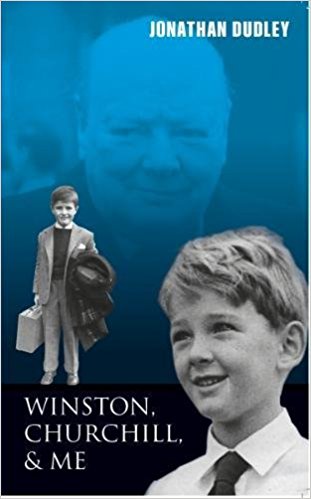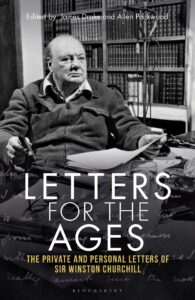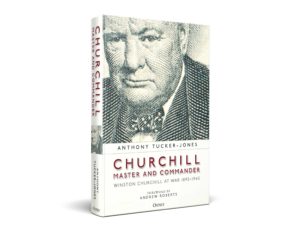Finest Hour 178
Books, Arts, & Curiosities – Through the Eyes of a Child

March 18, 2018
Finest Hour 178, Fall 2018
Page 51
Review by Fred Glueckstein
Jonathan Dudley, Winston, Churchill, & Me: A Memoir of Childhood 1940–1950, Skyscraper Publications, 2017, 89 pages, £7.99/$7.61. ISBN 978-1911072195
Fred Glueckstein is a regular contributor to Finest Hour and the author of Churchill and Colonist II (2014).
Jonathan Dudley was eight years old in the spring of 1949 attending a pre-prep school in London. One day young Dudley, who shared a desk with a boy named Winston Churchill, was told by his schoolmate that his grandmother wanted him to bring a “little friend” with him for his summer stay in Kent. Winston asked Jonathan if he would be that friend. Jonathan said he would. Afterwards, he learned from his family that Winston’s namesake grandfather was the famous statesman and war leader.
Dudley recalls that during his first visit to Chartwell in August 1949, his main impressions were of Mrs. Churchill. He remembered her as a lady of “grace and composure,” cheerful and caring to young Winston and himself.
Dudley remembers an early event at Chartwell involving Mr. Churchill, as he called him. With the general election some six months away, he and Winston were told during lunch that “a special event” was to occur that afternoon. Churchill was scheduled to give a live broadcast to the nation and to deliver his speech into the BBC microphone in his painting studio.
If Jonathan and Winston agreed to be absolutely quiet and made no sound at all, they could sit quietly in the studio and watch the Great Man deliver his speech. They agreed. Dudley remembers Churchill as relaxed, cheerful, talkative, and not nervous at all before beginning his broadcast. When the green light went on and Churchill began his speech, Dudley found that he did not have the “foggiest idea what Mr. Churchill was talking about.”
Dudley describes being introduced to Winston’s mother Pamela before heading to Chartwell. He also tells of encounters at Chartwell with other visiting members of the Churchill family, including Churchill’s son Randolph and June Osborne—whom he had wed after his divorce from Pamela—as well as Churchill’s daughters Mary Soames and Diana Sandys. Dudley also writes of Grace Hamblin, Mrs. Churchill’s Private Secretary, who was a great help to him.
Each day, Jonathan and Winston joined the Churchills for lunch in the dining room. Sometimes prominent guests attended, such as Robert Menzies, the Australian prime minister. One day, Jonathan sat next to Menzies, who taught him to eat a strange dish called grouse.
Another day at the end of a family-only lunch, Churchill called Jonathan over to him and asked him to stand by his chair. Churchill asked Jonathan, “What are you going to do with yourself when you grow up?” It was not an easy question to answer for the eightyear old. His recollection of his nervousness and foolish answer to Churchill has remained in Dudley’s memory for more than sixty-five years.
When Jonathan was again invited by the Churchills to stay at Chartwell in July 1950, he had many new experiences, including one where he and Winston went to Blenheim Palace to have tea with the Duke of Marlborough, Churchill’s cousin. There are poignant moments in the book, such as when Jonathan says goodbye to Churchill, who gives him an inscribed book, and tells the youngster “maybe you will read it one day.”
Dudley intertwines such fascinating stories of his visits to Chartwell with recollections of his own family. His description of trying to understand why his father was not coming home is particularly touching. The elder Dudley was killed on 9 April 1945 by a sniper while leading the Irish Guards battalion towards Berlin. At the time, Jonathan was four.
Winston, Churchill, & Me is well written, enjoyable, and contains memories that are often touching and amusing. As seen through the eyes of a child, Jonathan Dudley’s memoir brings to life the Churchills at Chartwell during the early postwar era. It is fascinating and recommended for readers of all ages.
Subscribe
WANT MORE?
Get the Churchill Bulletin delivered to your inbox once a month.






